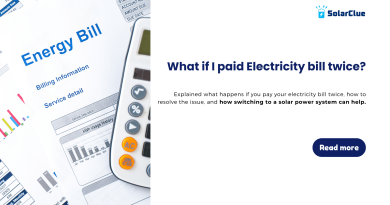Do You Understand The Significance Of A Solar Power System In Todays World
As we venture deeper into the 21st century, the necessity for renewable, sustainable, and environmentally friendly energy sources is becoming increasingly apparent. Solar energy, one of the most abundant and underutilized resources on the planet, has taken center stage in this critical discussion. The significance of a solar power system in today’s world cannot be overstated, given its potential to revolutionize our energy structure, reduce our carbon footprint, and ensure energy security for future generations. This article seeks to delve into the importance of embracing solar power systems in our quest for a greener, more sustainable planet.
Table of Contents
Addressing the Energy Crisis
Traditional sources of power such as coal, oil, and natural gas come with two significant drawbacks – they are finite and environmentally harmful. As global energy demands continue to surge, these resources are rapidly depleting. Embracing solar power systems can help mitigate the imminent energy shortage. Because the sun is a virtually infinite resource, solar energy helps guarantee long-term energy security. Furthermore, solar power generation is not only suitable for large-scale operations but also residential and commercial properties, thus reducing reliance on the national grid.
Mitigating Climate Change
The burning of fossil fuels for power contributes substantially to global greenhouse gas emissions, leading to global warming and the accelerated pace of climate change. Shifting to solar power systems, which produce electricity without releasing any harmful emissions, is a significant step towards reducing our environmental impact. Consequently, it is a key component of global actions to mitigate climate change. The broader implementation of solar power systems worldwide will bring us closer to achieving the commitments of the Paris Agreement and similar initiatives aimed at curbing greenhouse gas emissions.
Empowering Off-Grid Communities
For individuals and communities who live in remote locations where integrating with national grids is not feasible, solar power systems provide a viable, affordable, and sustainable solution. Globally, an estimated 1 billion people lack access to electricity, the majority residing in rural locales. Solar power systems can be set up at virtually any scale and in almost any geographical area, making them an ideal solution for such off-grid locations, and empowering these communities by granting them access to electricity.
Driving Economic Growth
The renewable energy sector, led by solar power, is poised to be a significant job creator. From manufacturing and installation to maintenance and troubleshooting, the solar power industry provides a myriad of employment opportunities. Additionally, a shift towards solar power could stimulate economic growth by reducing the amount spent on importing fossil fuels. Therefore, from an economic perspective too, solar power holds great significance in today’s world.
Reducing Energy Bills
On the individual level, the adoption of solar power systems can lead to substantial savings on energy bills. This advantage is especially striking in regions with high sunlight exposure year-round. The installation costs of solar power systems have been steadily falling, making it an increasingly affordable alternative. Combined with the possibility of selling excess produced power back to the grid in certain jurisdictions, solar power systems can be not only a cost-effective but also a revenue-generating investment.
Conclusion
In conclusion, the significance of a solar power system in today’s world is multifaceted. It offers solutions to impending energy shortages, contributes to the mitigation of climate change, empowers off-grid communities, fosters economic growth, and reduces energy bills. As we strive for a more sustainable, environmentally conscious future, embracing solar power systems will undoubtedly play a monumental role in reshaping our world for the better. Greater awareness and understanding of its benefits, along with concerted efforts to overcome the technological and financial barriers hindering its widespread adoption, are the need of the hour.
Here at SolarClue®, we offer a smart, practical, and “beautiful” solution. You will be answered for all the questions related to Solar.
We provide all kinds of brands that are the Best Solar panels in India.
If you are the one who is planning for the solar power system. Don’t hesitate to contact our team!
Looking forward to empowering you with solar energy, just like hundreds of our other clients!



